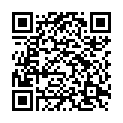|
|
|
| Module code: ABBG27 |
|
|
4V (4 hours per week) |
|
5 |
| Semester: 1 |
| Mandatory course: yes |
Language of instruction:
English |
Assessment:
Written exam (90 minutes)
[updated 11.10.2021]
|
Exam recurrence:
The information regarding exam recurrence is found within the exam policy of the study programme (ASPO).
|
ABBG27 (P410-0022) Aviation Business (Basic), Bachelor, ASPO 01.10.2015
, semester 1, mandatory course
ABBG27 (P410-0022) Aviation Business (Basic), Bachelor, ASPO 01.10.2018
, semester 1, mandatory course
|
60 class hours (= 45 clock hours) over a 15-week period.
The total student study time is 150 hours (equivalent to 5 ECTS credits).
There are therefore 105 hours available for class preparation and follow-up work and exam preparation.
|
Recommended prerequisites (modules):
None.
|
Recommended as prerequisite for:
|
Module coordinator:
Prof. Dr. Thomas Tinnefeld |
Lecturer:
Stephanie Haldy-Schmolze, M.A. (lecture)
[updated 04.05.2016]
|
Learning outcomes:
After successfully completing this module, students will:
- be able to understand basic and detailed information in intermediate and advanced general language and business English texts,
- be able to follow intermediate and advanced level conversations in their own area of expertise and deal with specific communicative experiences in English business life in a receptive manner,
- be able to communicate with native speakers using the linguistic means at their disposal in such a way that they can communicate successfully in general language and business-oriented conversations,
- be able to express themselves in writing on general language and selected specialized language topics in a largely comprehensible and communicative manner,
- be able to give professionally and technically-oriented presentations and create the corresponding written materials in a linguistically appropriate manner,
- have mastered the grammar relevant for the above skills, the basic general vocabulary, large parts of the advanced English vocabulary and an extensive English business vocabulary,
- be sensitive to the intercultural characteristics of countries belonging to the English-speaking world and thus, be able to successfully manage important communication situations in daily (business) life and
- be capable of embracing the intercultural differences of countries belonging to the English-speaking world and verbally interact there, to a large extent, successfully.
[updated 11.10.2021]
|
Module content:
- Reading and listening comprehension texts for intermediate and advanced language skills
- Production of relevant written English texts (e.g. business correspondence, memos, short reports, protocolls, curriculum vitae and letters of motivation)
- Production of relevant oral English texts (e.g. telephone conversations, short reports and negotiations with a relatively specific focus)
- Dealing with economic and business issues
- Vocabulary work and specialized grammar
- Multimedia language lab
- Role playing and simulations with reference to business life
- Creation of subject-related, specialized presentations
- Awareness of interculturally relevant contexts in the English-speaking world (both everyday life and work)
- Intercultural negotiation strategies
[updated 11.10.2021]
|
Teaching methods/Media:
- Presentations by the lecturer
- Plenary discussions
- Group discussions
- Partner work
- Group work phases where students tackle specific tasks
- Multimedia language lab
[updated 01.10.2020]
|
Recommended or required reading:
- Presentations by the lecturer
- Plenary discussions
- Group discussions
- Partner work
- Group work phases where students tackle specific tasks
- Multimedia language lab
[updated 11.10.2021]
|


